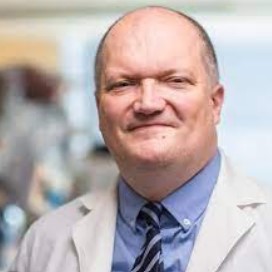Meet Eric Vilain
Written by Camila Lima in celebration of Pride Month

As part of SSR’s Pride Month series , Camila Lima spoke with Eric Vilain, Director of the Center for Genetic Medicine Research at Children’s National Hospital, and Professor and Chair of the Department of Genomics & Precision medicine at George Washington University. Dr. Vilain studies the genetics of sexual development, examining both mechanisms of gonadal development and genetic determinants of sexual orientation and gender identity. He has been involved in public discussions over practice guidelines for individuals with disorders of sexual development, rules for participation in international women’s sports, and other issues surrounding gender identity.
INTERVIEW QUESTIONS:
You’ve referred in your work to the spectrum of sex development. Can you explain what that means?
There are multiple parameters involved in biological sex: chromosomal (XX, XY, mosaics, sex chromosome variants), molecular (presence or absence of SRY, variants in sex-determining genes), gonadal (testis, ovary, ovotestis), hormonal (levels of testosterone, estradiol, etc.), internal genitalia (uterus, Fallopian tubes, vas deferens, epididymis, etc.), external genitalia (penis, scrotum, clitoris, labia and many intermediates). In other words, there is not one simple definition of biological sex, and there is no one parameter that should be the prominent one that “defines” what sex is.
How has your research contributed to the current understanding of sex development?
I have always been interested in variants of sex and gender and how they arise. My research on sex determination led me to evaluate the life trajectories of individuals born with differences of sex development. This led to a better understanding of the mechanisms of sex development and a better evaluation of outcomes both in terms of quality of life and gender.
How has research in this area led to changes in clinical care and gender attribution at birth?
Research performed by my group and others has led to the identification of novel genes and novel genetic variants associated with differences of sex development. These discoveries provided a shortcut to the “diagnostic odyssey” often experienced by families genetic counseling, aiding the reproductive options for the family and improving the monitoring process, such as the identification of associated risks. Lastly, a diagnosis provides a cathartic effect allowing for a better explanation of the condition, and less uncertainty moving forward. Knowledge of the condition also helped families and individuals make informed decisions regarding gender attribution.
How does the biology of sex development relate to gender identity?
The links between the biology of sex development and gender identity are far from established. Although there is some correlation between levels of androgens and gender development, there are multiple factors influencing gender identity, and it is unclear whether the major ones are biological.
Can you suggest resources for our members to educate themselves about issues faced by transgender people?
My suggested resource is ACLU’s page on transgender rights
What do you think reproductive biologists could do to support rights for transgender people?
Engaging the trans communities about research and providing accurate scientific information are the best things we can do to support trans rights as scientists.
What kind of resources are currently available for LGBTQ+ people to find a supportive community?
For both youth and adults, The Trevor Project is my favorite for finding a supportive community.

